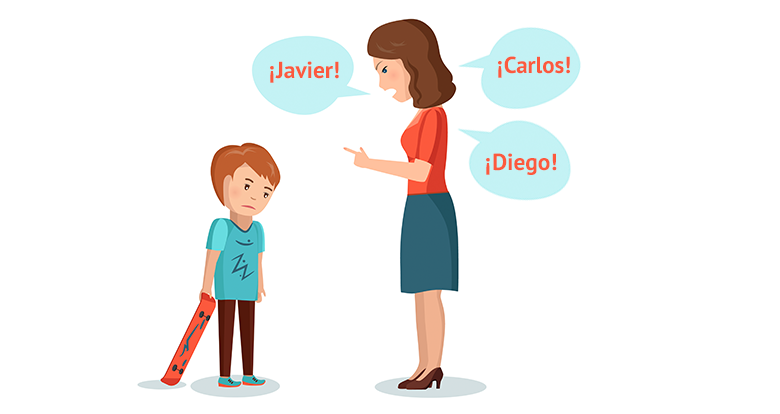¿Por qué los padres suelen confundir los nombres de sus
hijos?
Es muy común que nuestros padres cuando nos llaman nos digan
el nombre de nuestros hermanos y puede que hasta digan todos los nombres y el
último sea el tuyo. Pero esta situación ya tiene una respuesta científica:
Los neurocientíficos y psicólogos de la Universidad de Duke
mencionan que es un mero error cognitivo pues el cerebro tiende a relacionar a
las personas de nuestro entorno por grupos: la familia, los amigos, los
compañeros de trabajo, para ahorrar espacio y si el cerebro se despista en un
momento en el que nuestros pensamientos van muy rápido, es cuando sucede la
confusión, aunque en seguida reaccionamos remendando el error. En este estudio
se descartó que este suceso tenga que ver con la edad, etnicidad o parecido
físico de los hijos.
El estudio demuestra que este error cognitivo:
- Sucede cuando los nombres son similares fonéticamente o cuando comienzan con la misma letra. (como en el caso del nombre de mis hermanos y el mío que comienzan con C)
- También sucede cuando no existe esta similitud fonética, como cuando se intercambia el nombre de un hijo a una hija y viceversa, o con hijos (as) y compañeros independientemente de su sexo y su nombre y esto es porque se comparten vínculos similares con nosotros.
- Y por último, es posible que nuestros padres nos llamen por el nombre de la mascota.
Ahí lo tienen, nuestro cerebro es el que nos hace tener esa
confusión de nombres y a todos nos puede suceder, aunque a las mamás un poco
más.




Comentarios
Publicar un comentario